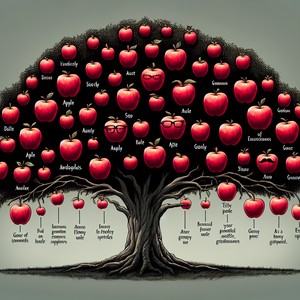The Rise of Social Media Recruiting

Historically, recruitment relied on conventional methods like job postings on company websites and recruitment agencies. However, the emergence of social media has significantly shifted this paradigm. According to a survey by Jobvite, approximately 70% of recruiters now view social media as an essential tool for sourcing candidates. This shift reflects a broader trend: candidates today prefer engaging with potential employers through social media, where they can research company cultures, engage with current employees, and better understand the employer brand.
LinkedIn: The Professional Network
Among social media platforms, LinkedIn stands out as the premier professional networking site. With over 900 million users globally, LinkedIn provides a unique blend of job searching and professional networking that is invaluable for recruiters. Companies leverage LinkedIn not only for job postings but also for proactively sourcing candidates by searching through profiles that align with their desired skills and experience. For instance, organizations like IBM and Google have successfully utilized LinkedIn’s advanced search features to identify and engage passive candidates—those who are not actively seeking new roles but possess the requisite skills. Additionally, LinkedIn Groups and company pages serve as platforms for employers to showcase their culture and engage with potential applicants. This proactive engagement not only attracts candidates but also enhances the employer brand by highlighting the company’s values and mission.
Instagram: Showcasing Company Culture
Instagram's visually-oriented platform provides an opportunity for companies to connect with candidates on a personal level. Businesses can share stories, posts, and reels that highlight workplace culture, employee testimonials, and behind-the-scenes glimpses of daily life in the office. This visual storytelling allows potential candidates to envision themselves as part of the team. Companies like Airbnb and Starbucks exemplify effective Instagram use by sharing authentic content that resonates with younger audiences. By using targeted hashtags and collaborating with influencers, they can reach a broader audience and attract talent that aligns with their brand values. This strategy not only aids in recruitment but also fosters community and belonging among employees, enhancing retention and engagement.
TikTok: Engaging the Next Generation of Workers
As a platform characterized by short-form video content, TikTok is emerging as a game-changer in recruitment, particularly for attracting Gen Z talent. Companies are creating engaging and entertaining content that showcases job openings and provides tips for applicants in a fun, relatable format. For example, Deloitte launched a TikTok campaign featuring employees sharing their career journeys in a relatable manner. This approach humanized the brand and made the prospect of working at Deloitte appealing to young job seekers. By leveraging trends, challenges, and viral content, organizations can create a buzz around their recruitment efforts, connecting with a demographic that values creativity and authenticity.
Influencer Partnerships: Expanding Reach
An increasingly popular strategy is collaborating with influencers. Companies partner with industry influencers to tap into their established audiences, gaining credibility and visibility in a crowded job market. This approach allows organizations to reach passive candidates who may not be actively looking for jobs but are influenced by trusted voices. For instance, a tech startup could partner with a well-known tech influencer to showcase its innovative work environment and culture, attracting potential candidates in a more organic and engaging manner. This strategy not only enhances recruitment efforts but also builds a positive employer brand image.
The rise of social media recruiting marks a significant shift in how companies attract and engage talent. By leveraging platforms like LinkedIn, Instagram, and TikTok, organizations can showcase their culture, connect authentically with candidates, and expand their reach through innovative strategies, including influencer partnerships. As the job market continues to evolve, embracing social media as a core component of recruitment strategy will be crucial for companies aiming to attract top talent. Ultimately, the future of recruitment is intricately intertwined with social media, and those who adapt to this new landscape will thrive in the competitive quest for talent.
Social Media Recruiter
Recruitment agencies, tech companies, and retail brands
Core Responsibilities
Develop and implement social media recruitment strategies to attract top talent across various platforms.
Analyze engagement metrics and adjust campaigns to improve candidate reach and effectiveness.
Collaborate with hiring managers to create compelling job descriptions and employer branding content.
Required Skills
Proficiency in using social media tools and analytics to measure recruitment campaign success.
Strong written and verbal communication skills to craft engaging content.
Experience with platforms like LinkedIn, Instagram, and TikTok for recruitment purposes.
Employer Branding Specialist
Large corporations, startups, and consulting firms
Core Responsibilities
Design and execute employer branding strategies that highlight company culture and values across social media channels.
Create multimedia content, including videos and graphics, to showcase the employee experience.
Monitor and manage the company's online reputation and respond to employee feedback on social platforms.
Required Skills
Expertise in graphic design tools (e.g., Adobe Creative Suite) and video editing software.
Ability to analyze market trends and competitor branding strategies.
Strong project management skills to coordinate campaigns across various teams.
Digital Marketing Specialist (Recruitment Focus)
Marketing agencies, e-commerce companies, and corporate HR departments
Core Responsibilities
Develop targeted digital marketing campaigns to promote job openings and enhance the employer brand across various channels.
Utilize SEO and PPC strategies to drive traffic to job postings and career pages.
Collaborate with recruitment teams to ensure alignment between marketing and hiring goals.
Required Skills
Familiarity with Google Analytics, AdWords, and social media advertising tools.
Strong analytical skills to assess campaign performance and optimize for better results.
Knowledge of content marketing strategies specific to recruitment.
Talent Acquisition Specialist (Social Media Strategy)
Tech companies, healthcare organizations, and nonprofit sectors
Core Responsibilities
Utilize social media platforms to source and engage with potential candidates, particularly passive job seekers.
Conduct outreach efforts and build relationships with candidates through personalized messaging.
Organize and participate in virtual recruitment events and online job fairs to connect with talent.
Required Skills
Strong networking skills and experience using LinkedIn Recruiter.
Excellent interpersonal skills to develop rapport with candidates.
Familiarity with applicant tracking systems (ATS) and candidate management tools.
Content Creator for Employer Branding
Media companies, startups, and organizations
Core Responsibilities
Create engaging video and written content that highlights company culture and employee stories for various social media platforms.
Collaborate with HR and marketing teams to align content with recruitment goals and company messaging.
Monitor audience engagement and feedback to refine content strategy continually.
Required Skills
Proficiency in content creation tools, video editing software, and social media platforms.
Strong storytelling abilities to effectively communicate the company's mission and culture.
Experience with analytics tools to measure content performance and audience reach.


